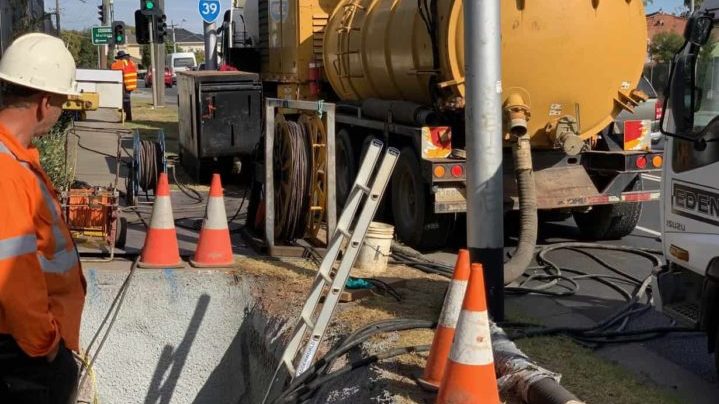While it is sometimes hard to predict when uncertain times will hit and demand for microtunnelling work will drop, there are two key factors that can help contractors stay afloat and make the most of the work available: having a mobile work crew and flexible equipment. Here, Stuart Harrison, Managing Director of Edge Underground, talks about how these factors allow contractors to make the most out of the work available, no matter the location.
Mr Harrison said mobility and flexibility have become increasingly important in microtunnelling in order to meet demand and win work.
“The demand periods for microtunnelling work change all the time, and while in some cases it can be predictable such as in different seasons, you can never be too confident as there will be unexpected periods of low demand.
“But no matter how much or how little work is out there, if you are too inflexible, you’re just not going to win work.”
Taking advantage of a mobile workforce
The key advantage of having a mobile workforce is that you can take on jobs at any location.
“The teams at Edge Underground are set up to be permanently flexible. So they’re on wheels, are self-sufficient and can move around to different job sites quickly and easily,” Mr Harrison said.
“For us to go and do a job in another part of the state, or in a different state altogether, we only require accommodation to be sorted out, and maybe to source local support for engineering or basic jobsite requirements. But as far as we’re concerned, we’re ready to complete jobs no matter where they are.
“We’re able to do this because we use the AXIS system which is unique in that it can be configured in a number of ways depending on the jobsite footprint and transport considerations. It has a number of truck or trailer setup options, so we’re uniquely efficient and able to move wherever the job may be.”
Another key advantage of a mobile workforce is that if contractors are experienced working in different locations, they are more likely to have good systems in place, and be fully prepared with the right number of staff and equipment, including spare parts and backups.
“By moving to different locations, crews can gain a lot of experience working with different ground conditions, which means they understand how different ground conditions react and how to handle them, decreasing the chance of unexpected complications occurring,” Mr Harrison said.
“Familiarity with equipment and how to best adapt cutter faces for different ground conditions is something that can only be gained from working on projects in different locations.”
Mr Harrison said his Victorian team takes full advantage of being mobile by moving north during the colder months when there is less demand for work in the southern states.
“For us, it’s a business strategy to hedge against Melbourne winters when work in Victoria can really slow down. Working in the cold weather can also really have an effect on the crews, so to have the option to go up north to Queensland where there’s warmer weather is pretty enticing,” Mr Harrison said.
“It also seems that when the work in Victoria decreases, budgets in Queensland are higher and there is more spending. At different times when we’ve had a lull in the market in Victoria, Queensland’s been on fire, so we’ve always been able to stay busy.”
A flexible system
Having flexible equipment is also key to meeting different demand periods as it ensures contractors can work across a wide range of specifications and conditions without needing to invest a lot of money on additional machines or modifications.
“If you have a machine that can go from 350mm to 1,500mm with simple modifications and work through a variety of ground conditions, it can be adapted with little to no cost. This means if it’s quiet in one area, you can also cover other areas, which may have more work available.
“If you only buy a machine that suits a specific job and set of conditions, you’ll be limited to what you can achieve with it on other jobs, unless the same conditions are present or extensive modification is done.
“This not only costs money, but time as well, where a different contractor may be able to start the job sooner.”
Microtunnelling in the age of Coronavirus
Mr Harrison said being able to be mobile and flexible could become important when it comes to finding jobs during the Coronavirus downturn and keeping business afloat.
“We don’t know how the Coronavirus will impact the industry in the mid to long term yet, and whether it will result in an unexpected low demand period. In the meantime, construction is considered an essential service so we are still able to move between borders where there are restrictions to complete necessary work.
“However, without knowing how it could affect future project funding, it’ll be more important than ever for contractors to be able to take on any job no matter how hard it is and no matter where it is located, and having a mobile and flexible workforce and equipment will be key to being able to do this.”

